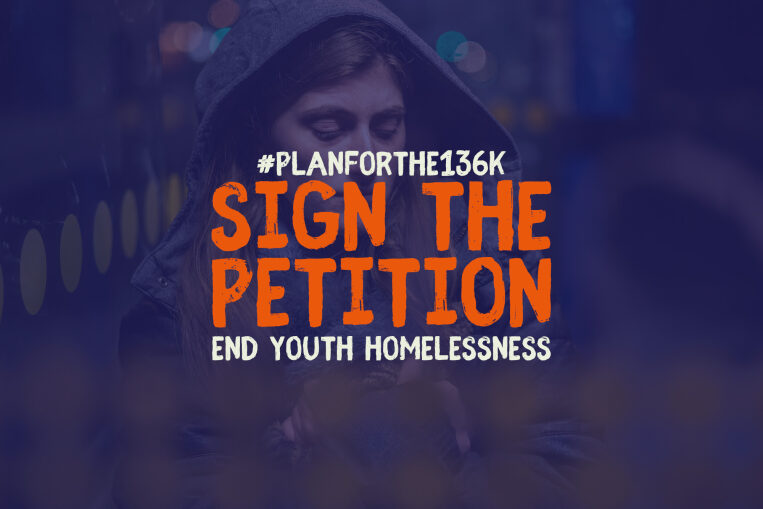
136,000 young people faced homelessness last year, but experts say the true number could be as high as double that figure.
Politicians, charities and celebrities have united over a government petition calling for a national youth homelessness strategy.
Depaul UK has joined with more than 100 charities calling on all political parties to come together and adopt a national strategy to end homelessness. Young people need access to better housing, fairer finances and more support to prevent homelessness in the first place.
In a nation struggling with a housing crisis, young people’s experiences are often ignored. There simply isn’t enough suitable, affordable and youth-appropriate housing. Young people are the most likely to be in low paid, insecure roles, and have the lowest savings and financial support.
According to recent Centrepoint research the number of young people approaching their council as homeless or about to become homeless has risen to 135,800 for 2022-23. This equates to 372 per day, and a new young person facing the harm of homelessness every four minutes. Of those, 20,200 were in London: that’s enough to fill every seat on a double decker bus every day. Centrepoint’s research also found that 35% of these young people weren’t assessed at all when they approached their local authority for help. Many are told to go home, even though this may not be a safe option.
That is one of the many reasons why a collective of over 100 youth and youth homelessness charities have united to call on the government to adopt and implement a national strategy to end youth homelessness. The strategy prioritises three key areas; prevention, finances and housing and lays out specific updates and evidence based solutions that the government should support in order to tackle the crisis.
The collective of homelessness and youth organisations have united to call on those in power and seeking to be in power to put young people first, and to deliver a strategy to end youth homelessness ahead of the next general election.
Join us to campaign for a #PlanForThe136k by signing the petition here.
We need 100,000 signatures to be considered for debate in Parliament and get this crucial issue on the political agenda.